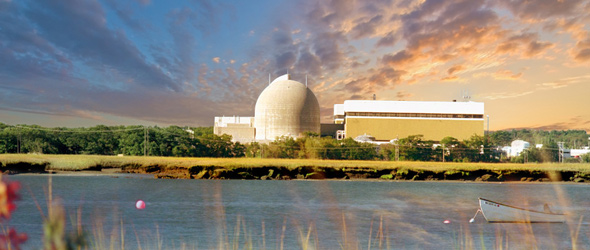More voices are now being heard calling for the shutdown of the Seabrook Nuclear Power Plant.
Two Newburyport, Mass., city councilors have called for the shutdown of the plant, which has been operating since 1990.
Sharif Zeid, Ward 1 Councilor, and Gregory Earls, Councilor-At-Large, sent a letter to the U.S. Nuclear Regulatory Commission asking that the agency shut down Seabrook Station.
The Jan. 4 letter was addressed to NRC Chairman Stephen Burns. “As city councilors, our most basic responsibility is to assure the safety and health of Newburyport’s residents. We firmly believe that the Seabrook nuclear reactor poses an unacceptable risk to the lives and livelihood of the people of Newburyport and New England.”
“On behalf of public safety, we call upon the U.S. Nuclear Regulatory Commission to shut down the Seabrook Station nuclear reactor by withdrawing its license to operate,” the letter says.
They write that “the plant is plagued by alkali-silica reaction or ASR. ASR is a completely novel problem to any US nuclear power plant, and is novel to the NRC staff as well. Both the plant staff and the NRC are operating in uncharted waters.”
Roger Wood has followed the plant from site evaluation hearings in the 1970s through the protests that included sit-downs and unsuccessful attempts to storm the gates, to 1990 when the 1100 megawatt reactor began operating.
While the nuclear boiling water reactor has been operating efficiently and safely through the years, the issue of alkali-silica contamination in some concrete foundation walls has fueled new calls for a shutdown.
Roger Wood spoke with Alan Griffith of Nextera, the plant’s owner. The company says the chemical reaction doesn’t affect the nuclear reactor walls, although it does concede that groundwater has caused the reaction in some buildings on the plant site.
He also spoke with Joanna Hammond, a resident of Amesbury, Mass., a town within the 10-mile Emergency Planning Zone. She is also a member of the anti-nuclear No More Fukushimas group.
Other outspoken opponents of the plant include the Seacoast Anti-Pollution League, based in Portsmouth, which is also within the EPZ. The owners of the plant are seeking a license renewal to extend the life of the nuclear plant until 2050.





